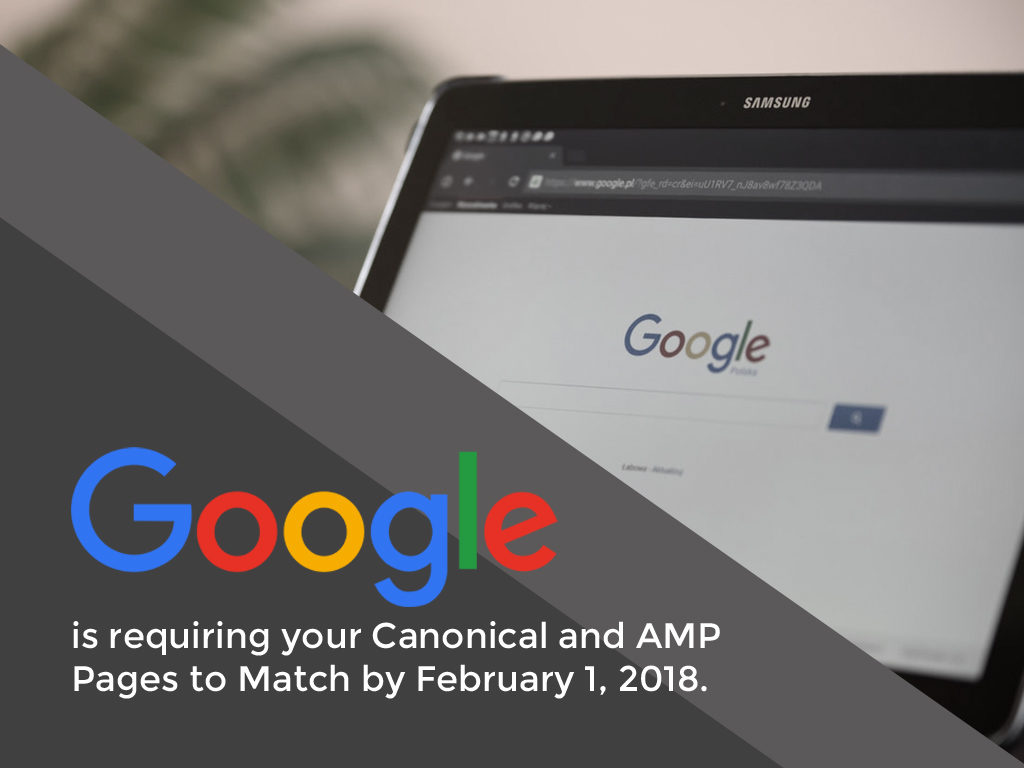Google is requiring your Canonical and AMP Pages to Match in 2018
As announced by Google last November 16, 2017, they are enforcing a policy that would require Canonical content to be compatible with the AMP page content. With AMP becoming an integral feature in various domains, this announcement aims to improve the overall user experience, especially for mobile users. Google set the deadline, which is on February 1, 2018.
With the abundance of smartphones and tablets, more users opt to access the internet through their devices, which prompted Google to create a system in which these webpages would have mobile version that is optimized and user-friendly. This does wonders when it comes to increasing the number of users visiting the page, as the faster loading times allow for better viewing and access.
The announcement was done due to the fact that some websites have canonical content, while having a different AMP page. This means that they do not match, can affect user experience, as it would make users click for “full content” or the equivalent.
Having close parity between the original and mobile content is necessary, and websites that do not comply will not be considered for search features that require AMP. This includes the Top Stories carousel. Another consequence for those who do not comply after the deadline is that users would be redirected to a non-AMP site, which may affect user experience.
For those who have not optimized their website and content to comply with the changes, you can go to the AMP open source site to be able to make your own AMP pages.
Importance of AMP
We have stressed the importance of using AMP, along with a guide on how to make it work on your WordPress in our previous article. Despite Google stating that it is not a direct ranking factor, there has been some evidence that it can somewhat affect the ranking factors indirectly. As said on another one of our articles, this can mean that AMP will soon be the norm for SEO services worldwide.
Key Takeaway
AMP is a feature that looks to become an important part of SEO in 2018 and beyond. With the emphasis on improving page performance to improve the user experience, it is no surprise that Google wants to incorporate AMP more in the immediate future.
If you have any questions and inquiries about AMP and SEO, leave a comment below and let’s talk.
